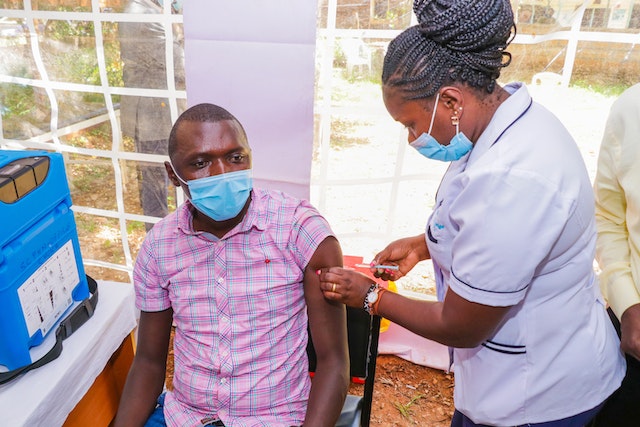6 Great Reasons To Pursue A Public Health Degree
Those who enjoy helping others can find many professional job opportunities in the expansive field of health. It offers almost limitless opportunities for professional specialization, combining different academic fields for a multidisciplinary approach to health care. While your reasons for studying public health will be as unique as you are, here are six of the most common ones.
-
An emphasis on social justice
There is a strong commitment to social justice among students, and universities are responding to that commitment. A public health degree teaches you the factors that determine health, how history impacts current outcomes, and how to tailor public health programming to specific communities. The Tuskegee experiment may have shaped modern medical ethics, or you might read about the disparities in maternal mortality across communities.
The field of public health can help you fulfill your passion for serving a particular community. For instance, those fluent in multiple languages are in demand and can create or tailor educational messages for specific communities.
Depending on your community’s unique strengths, you may have valuable lived experience. Public health jobs seek professionals with this type of experience to improve public health awareness and address cultural diversity issues.
Professionals and students in public health are encouraged to bring their whole selves to their work. You won’t be trapped in a corporate job with an MPH degree. Your professional community will instead value and welcome your personal experiences.
-
Respond to emergencies
It’s not just about sitting in front of a computer delivering PowerPoint presentations. Public health officials are often at the forefront of emerging disease outbreaks, whether they are limiting COVID-19 spread or disposing of Ebola-affected hospital waste in West Africa.
Epidemiology, the study of disease transmission, and biostatistics are the most likely specialties for careers in public health emergency response. A career path in these fields usually involves working for the government, particularly the Centers for Disease Control (CDC) or non-governmental organizations like the World Health Organization (WHO).
Non-profit agencies in some areas also address public health crises. While these institutions are more likely to deal with outbreaks’ long-term effects, they are less likely to address their immediate consequences. For instance, a non-profit could help strengthen the local health system during an outbreak, whereas a larger organization might be the first to respond.
-
Problem-solving
Experts in public health solve problems related to community and global health. Developing prevention programs and fighting diseases are rewarding challenges for these professionals. They can identify overall health risks, implement plans to resolve them, and remain engaged at work. Based on interactions with communities and statistical data, they assess its needs. Then they make plans for resolving issues based on that data and ethical considerations.
The public health field never runs out of problems to solve. In recent years, public health has moved beyond controlling infectious diseases like polio or malaria to addressing more persistent problems like obesity, heart disease, and brain injury. The focus of public health has shifted back to infectious disease prevention in recent years due to outbreaks of Zika, COVID-19, and even measles. The need for public health professionals will continue to evolve as human behavior changes.
-
Giving back to the community
Those who work in public health are passionate about improving the health and well-being of other people and communities. The greatest reward for public health professionals is knowing they are making a lasting impact on society.
Local communities are directly affected by the work of public health workers. Public education and health awareness are their responsibilities. By tracking statistical data at the community level, they can identify local health problems and advocate on their behalf.
The opportunity to help others in various ways is a major reason so many students choose to study public health. Public health educators or patient navigators who help community members navigate health questions can be rewarding careers for people who thrive on interactions with others.
Introverted students can also find fulfillment working behind the scenes in statistical analysis or program development. Regardless of your chosen public health career path, you will make a difference in your community.
-
Having a global impact
Public health professionals are involved in worldwide policy initiatives and helping communities. They aim to improve health in developing nations and prevent disease outbreaks by guiding public policy and international programs.
Public health fields analyze statistics and gather data to determine trends, reducing health-related problems in certain geographic regions. These reports are also used to develop policy changes through international organizations so that these societies can improve permanently.
Global health organizations are competitive places to work. Those who like to work here must hold a degree in public health. Additionally, knowing a foreign language will help since global agencies often use Chinese, Spanish, Arabic, or French. To gain experience working in challenging conditions, you should strongly consider joining the Peace Corps, a two-year international program. If you are interested in pursuing a dual degree in health policy and a degree in health policy, you might want to concentrate on that field during your degree program.
-
Variety of professionals
There are a variety of professions and opportunities for upward mobility within the public health field. Creating public health policies, developing medical care programs, analyzing health statistics, and educating communities about health are all part of public health.
In addition to the variety of jobs available, public health workers can choose whether to work in schools, government, or private companies. Both international and local organizations require public health workers. Hence, the options are numerous.
Those who want variety in their careers should consider a career in public health with a non-profit organization. With a small organization, you will be responsible for multiple tasks. For example, the public health director of a homeless shelter might pursue grants, schedule tests with the local health department, train employees, coordinate weekly group meetings for visitors, collaborate with a university to conduct research to improve services and create an emergency response plan.
If you’re willing to change departments and jobs every few years, you can also find changing public health roles by working for a government agency. The transition from an entry-level position in the community health education department to management in the restaurant inspection department and eventually to the position of county-wide director. While you’ll enjoy plenty of benefits, like paid time off and affordable health insurance, your career advancement depends on government funding.
Conclusion
A health degree can provide health care for children, prevent diseases, provide education, help with disaster relief, ensure clean water, improve access to healthcare, and so much more. If you are passionate about helping humanity, this career might be for you.
Share this content:














Post Comment